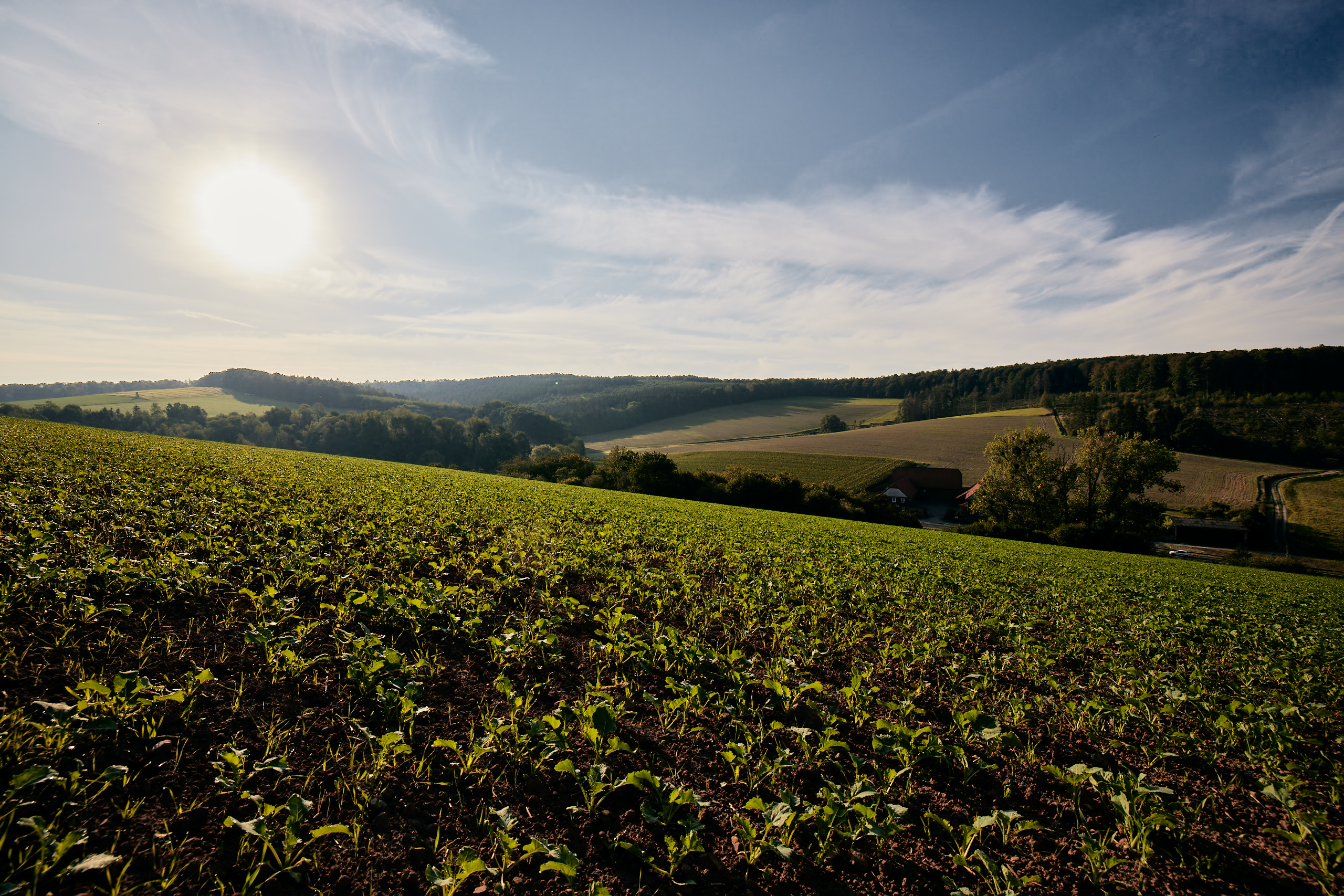Corn4Future – Why corn has sustainable uses
The European Green Deal and the Farm to Fork strategy have set clear targets around sustainable farming in Europe. Among these targets is a reduction in the use of chemical plant protection by 50%. This is where the seed sector continues to act as a key solution provider and offers a great sustainable potential. Corn requires only minimal plant protection of 1-2 starter applications (Source: Deutsches Maiskomitee e.V. (DMK) (2024)). With our breeding efforts toward “low input varieties”, varieties that can use existing resources like water and nitrogen more efficiently, KWS corn varieties contribute to more sustainable use of resources.
Corn is very efficient in its water and nitrogen use
Heat and drought are the two most important environmental stresses imposing a huge impact on crop growth, development, biomass productivity and grain yield. Corn exhibits high water use efficiency and drought tolerance. This results in stable yields even under water stress. Corn requires 100-300 liters of water to produce 1 kg of dry matter, thus showing an efficient water use compared to other crops (Source: Deutsches Maiskomitee e.V. (DMK) (2024)).
Both biomass production and grain yield production can only grow from available nitrogen. Nitrogen is, besides water, light and temperature, the main driver for plant growth. However, certain genotypes can produce more yield, from less nitrogen.
Closer look: What´s in for sustainability?
Sustainability starts with the seed
Contact








